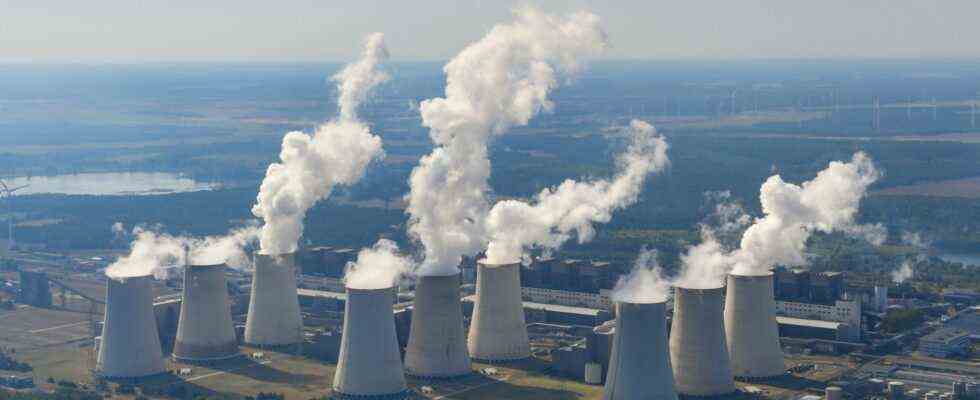Status: 04.11.2021 3:41 p.m.
The coal phase-out planned for 2038 could be brought forward to 2030 if the SPD, the Greens and the FDP are willing. Now the head of government of a coal country has also been open to it. Who is against it now? And why?
What should have priority – protecting the climate or protecting jobs? This is how the crux of the coal phase-out can be summarized in a nutshell. There are currently a good 25,000 jobs in this branch of industry. These are likely to disappear sooner or later if Germany abandons energy generation by burning coal, which is harmful to the climate.
This is precisely why the East German federal states are resisting even more speed, against bringing the exit date forward from 2038 to 2030: “We need the time so that everything works and really new jobs can be created parallel to the loss of jobs. We promised people that. And that’s how we want to be measured “, emphasizes Saxony-Anhalt’s Prime Minister Reiner Haseloff in the ARD.
It can cost the federal government up to 40 billion euros to compensate the affected regions. A new ICE plant is being built in Cottbus, and federal authorities are deliberately located in coal areas. One example is the agency for innovation in cybersecurity in Halle.
“For Lausitz this is the coup de grace”
Thousands of new jobs are to be created in this way. Structural change is the technical term. But can the affected regions cope with a further tightening of the pace, an advance of eight years? No, said Saxony’s Prime Minister Michael Kretschmer recently in the Report from Berlin.
He also pointed out that the exit schedule had only just been decided in 2019: “Whom should the citizens believe something? For Lusatia this is the coup de grace. We need the years until 2038 to build infrastructure in order to settle new jobs . ”
The CDU regional leaders Kretschmer and Haseloff are likely to be worried that even more voters will run into the AfD, which speaks of “betrayal” of the people. But it is also clear that global warming will hardly take a break out of consideration for German structural change.
Work order for traffic light coalitionists
The newly sworn in Prime Minister of the North Rhine-Westphalia coal region, Hendrik Wüst, caused a sensation when he stated in his first government statement: “In North Rhine-Westphalia we are ready to phase out coal as early as 2030.” However, the CDU politician immediately linked this commitment with a work assignment to the possible traffic light coalition of the SPD, the Greens and the FDP in Berlin: “To do this, we must manage to make coal as an energy source superfluous.”
For this, in turn, an energy-political show of strength would be required, in which it is uncertain whether it can succeed at all – at least in the short term. A full quarter of all greenhouse gases blown into the air by Germany currently come from burning coal.
In the best case, says the Professor of Sustainable Energy Economics from the University of Flensburg, Pao-Yu Oei, it would be possible to replace electricity from coal with electricity from renewables. But it could also turn out differently: “The counterexample would be that we have phased out coal, but instead built a lot of new gas-fired power plants. They have to run all year round because we could not sufficiently accelerate the expansion of renewables,” said Oei im Tagesschau podcast times accepted.
If you want speed, you have to make speed
The rate of expansion of renewables would have to quadruple if one wants to completely replace electricity from coal with electricity from wind and sun, explains Oei. If you want more speed, you have to speed up – so the motto of a possible traffic light coalition should be: The rapid expansion of wind power and sun, the rapid replacement of jobs, possibly the faster payment of the billions in structural aid to the affected regions.
All of this would have to be done by the SPD, the Greens and the FDP in order to pull off the planned tightening of the pace of the coal phase-out. “Ideally,” it says in the exploratory paper, the phase-out should succeed by 2030. If this restrictive word is deleted from the coalition agreement, a lot of work awaits red-green-yellow.
The crux with the coal exit
Kai Küstner, ARD Berlin, November 4, 2021 3:18 pm

